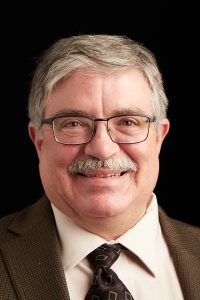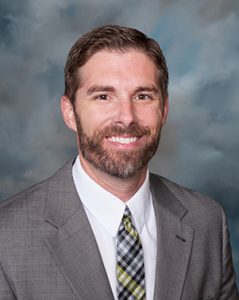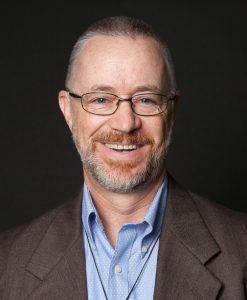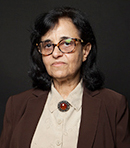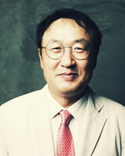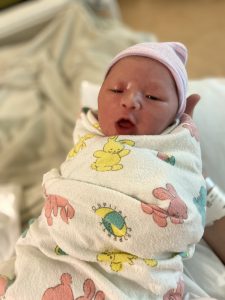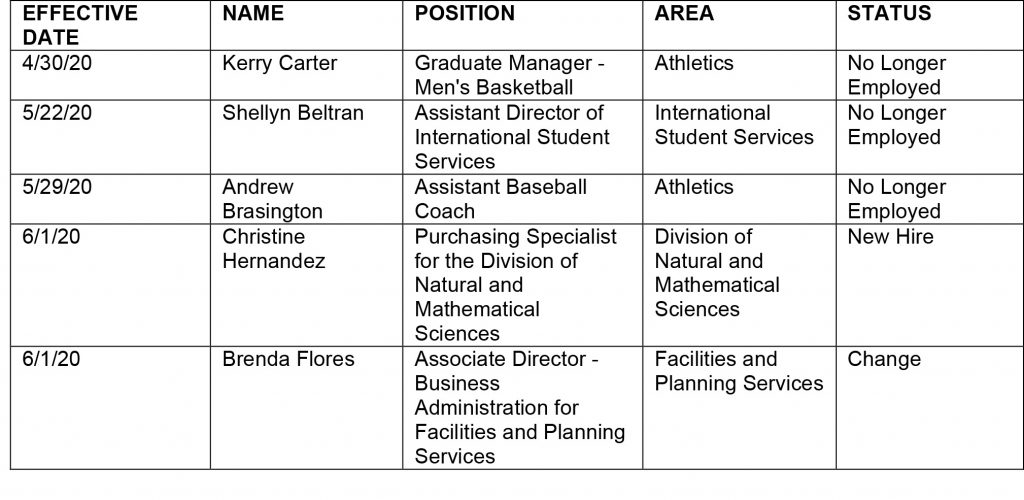In this issue…
Current News
CBU fall semester revised; classes begin Aug. 24
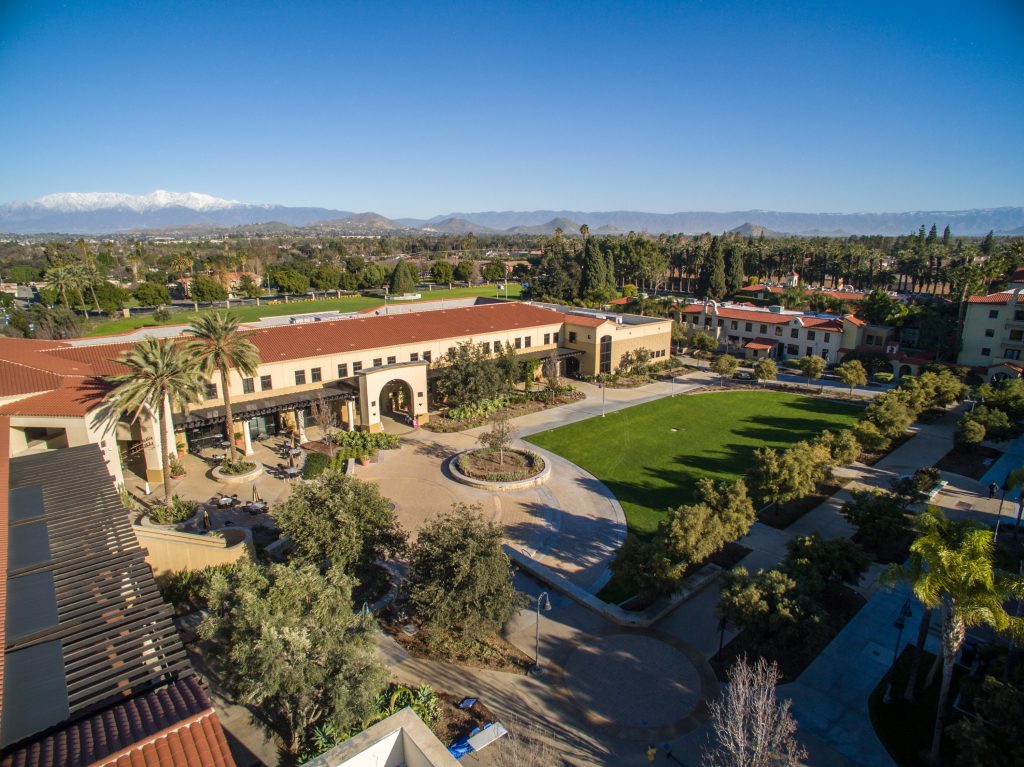 The return to classroom instruction at California Baptist University will begin Aug. 24, two weeks earlier than previously scheduled. CBU officials said moving up the start date means the fall semester also will end two weeks sooner than previously published.
The return to classroom instruction at California Baptist University will begin Aug. 24, two weeks earlier than previously scheduled. CBU officials said moving up the start date means the fall semester also will end two weeks sooner than previously published.
Under the revised schedule, the fall semester will conclude when final exams end on November 24, two days before Thanksgiving. CBU officials said this will create an extended break before the spring semester begins in January 2021. It is designed to reduce the campus population during the traditional flu season when some health officials also predict a possible new wave of the COVID-19 virus.
All CBU programs were moved to remote instruction in late March after the Riverside County Public Health Officer ordered the closing of schools, colleges and universities to help prevent spread of the novel coronavirus. New safety protocols are being implemented for the return of residential students and resumption of classroom instruction. These include social distancing, enhanced sanitizing, and the required use of face coverings.
Starting fall classes early affects only the CBU traditional calendar. It does not change the schedule for Online and Professional Studies division programs.
CBU webinar explores living life after COVID-19 lockdown
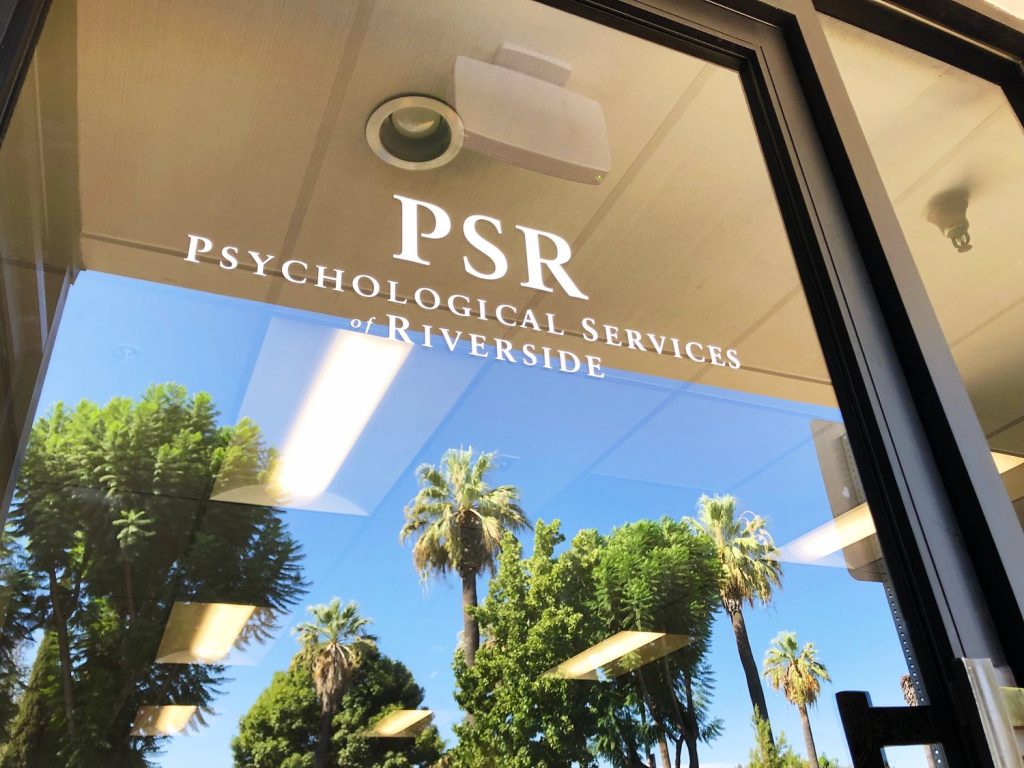 Psychological Services of Riverside, a California Baptist University-run community clinic, hosted a webinar titled “Thriving in an Uncertain World” on June 4. The webinar focused on helping participants move forward in a post COVID-19 reality.
Psychological Services of Riverside, a California Baptist University-run community clinic, hosted a webinar titled “Thriving in an Uncertain World” on June 4. The webinar focused on helping participants move forward in a post COVID-19 reality.
The webinar, hosted online through WebEx, featured Dr. Timothy Sisemore, CBU professor of psychology, director of Psychological Services of Riverside and an expert in anxiety disorders.
Stress, anxiety and fear can affect people as they begin to go out more after the pandemic shutdown, Sisemore, professor of psychology, told the listeners.
“If we wait until we’re 100 percent certain before we get back to our lives, there is a toll to be taken there. Our quality of life suffers,” Sisemore said.
There are still a lot of unknowns and questions with COVID-19, Sisemore acknowledge.
“It’s important to remember first that we’re not going to know the answers to most of these questions, “Sisemore said. “But secondly, we need to add this to the fact that we have in the past learned to cope with uncertainties every single day.”
Other uncertainties range from the flu and other contagious diseases to the risk when driving, Sisemore said.
Although every person has to determine what risks are reasonable to take, living in fear has its own detriment, he said.
“It can also affect mental health, when we live in so much fear we can’t get back to our lives,” Sisemore said. “The way we don’t let uncertainty overcome us is by pivoting toward the things that are uncertain, that you don’t run from it, you face it.”
There are ways to deal with uncertainty, Sisemore said. They include acknowledging that you can handle feeling anxious; embracing the present; focusing on the things that you are grateful for; and finding meaning in situations.
“The more we get afraid of doing things that we probably are safe doing, the more it deprives us of living the lives we want to live, to pursue the things that matter to us,” Sisemore said. “As you move toward things, you have to take some type of risk.”
Nursing faculty serve on the front lines of the pandemic
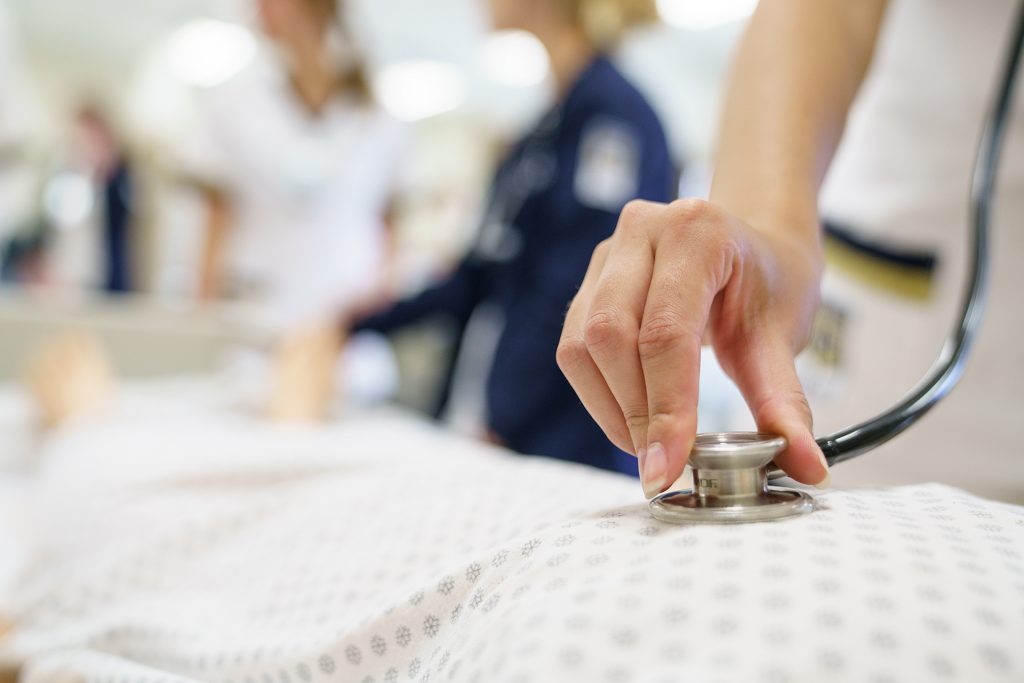 Andrea Abrams, a nurse at Riverside Community Hospital, has been on the front lines assisting COVID-19 patients in the intensive care unit. Abrams is also an adjunct professor of nursing at California Baptist University and during the past spring semester, she remotely shared the lessons she learned while working in these unprecedented times.
Andrea Abrams, a nurse at Riverside Community Hospital, has been on the front lines assisting COVID-19 patients in the intensive care unit. Abrams is also an adjunct professor of nursing at California Baptist University and during the past spring semester, she remotely shared the lessons she learned while working in these unprecedented times.
“I am able to really help students understand the importance of hand hygiene, PPE [personal protective equipment] use and infection control,” Abrams said. “It’s the donning and doffing of PPE that has become a very important skill.”
Abrams (’13, ’17) is one of several CBU College of Nursing faculty who are on the front lines of the COVID-19 pandemic.
“There is so much to learn right now, for both the novice and experienced nurse,” Abrams said. “I can say that I will do my best to ensure that students look at the patient as a whole person, not just their 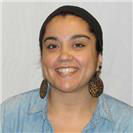 diagnosis or disease.”
diagnosis or disease.”
Abrams has family members on the front line, too. Her husband is a respiratory therapist and her oldest son is an emergency medical technician.
To prepare for work, Abrams prays and mediates. Her unit has initiated a time of prayer 10 minutes prior to the start of a shift.
“Initially treating COVID-19 patients was scary, more so because of the unknown,” Abrams said. “As nurse I try to remember that it is not a virus I am fighting, it is a patient I am treating.”
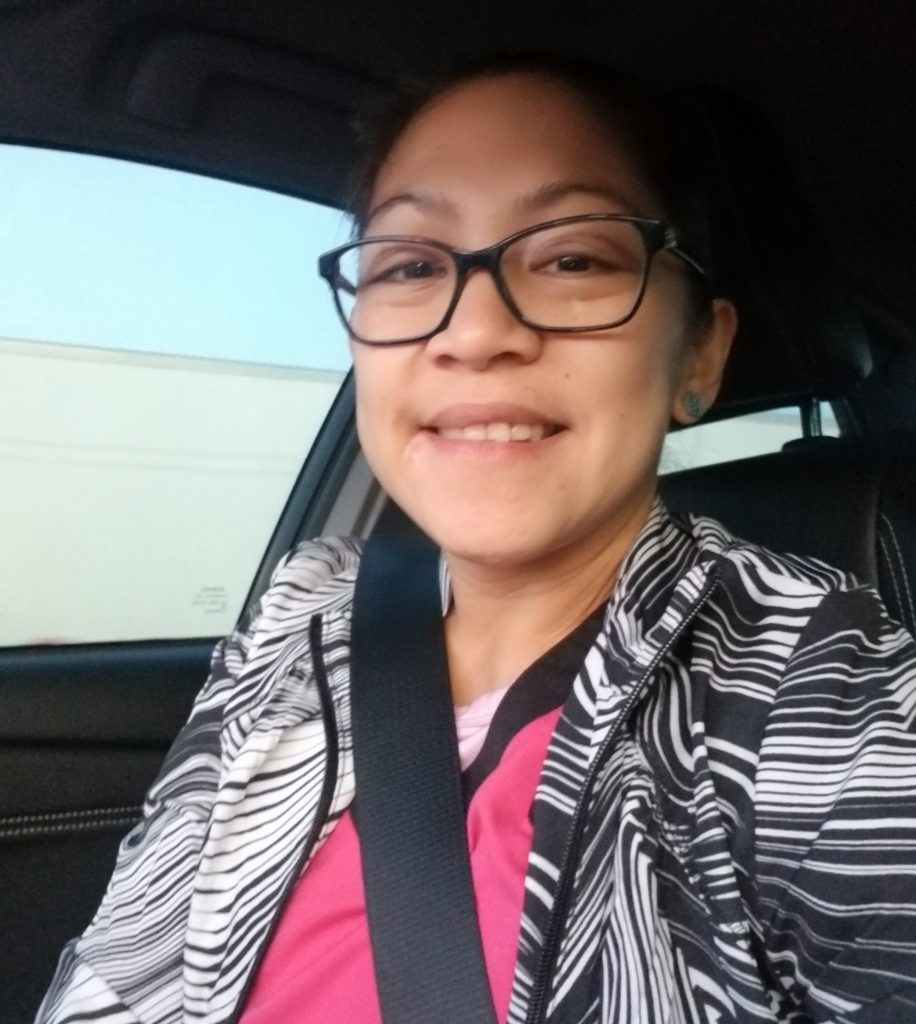 Grasiela Campbell (’13, 18), adjunct professor of nursing, works at Kaiser Medical Center in Ontario, California.
Grasiela Campbell (’13, 18), adjunct professor of nursing, works at Kaiser Medical Center in Ontario, California.
With COVID-19, there is an underlying anxiety because of the unknowns about the virus, Campbell said.
“To me, I always come to work and have the same mindset—I pray to the Lord that He will send me to where He wants me to be and meet the people that He wants me to meet and show them God’s love through my work,” Campbell said.
Campbell has shared stories with her students, on how she has been able to help COVID-19 patients.
“I like to spend time with my patients, getting to know them. I talk with them and offer to pray for them,” Campbell said. “What I emphasize with my students is that these patients do not need to be treated differently because they already feel isolated and alone.”
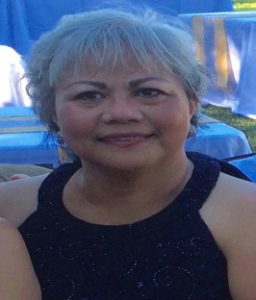 For the spring semester, Dinah Herrick, assistant professor of nursing, was the clinical instructor for 10 students. Midway through the semester, she discovered that half of the group had cared for COVID-19 patients.
For the spring semester, Dinah Herrick, assistant professor of nursing, was the clinical instructor for 10 students. Midway through the semester, she discovered that half of the group had cared for COVID-19 patients.
“I asked how they felt about it and they said that ‘we care for them like the other patients.’ I thought maybe they would be scared of the whole situation,” said Herrick, who is a wound expert nurse for Emanate Health located in Los Angeles County. “But I saw courage in them which made me proud.”
Herrick also shared her own experiences with COVID-19 patients to her students. Herrick said that she finds purpose in caring especially for patients who come from nursing homes and are not allowed to have visitors.
“I treat COVID19 patients the way I treat the non-COVID patients, with dignity and respect,” she said.
Herrick comes from a nursing family. Her two sisters are nurses and her two sons are CBU graduates and are nurse practitioners.
“I am very proud of our younger generation of nurses who showed courage in caring for COVID-19 patients,” Herrick said. “They just performed well. They put on their PPE and went to the patient’s room and cared for them.”
CBU to offer a Doctor of Social Work degree starting in fall 2020
 California Baptist University is set to offer a Doctor of Social Work program beginning in the fall 2020 semester.
California Baptist University is set to offer a Doctor of Social Work program beginning in the fall 2020 semester.
The College of Behavioral and Social Sciences has enjoyed enormous success in its Master of Social Work program, said Dr. Krystal Hays, director of the doctoral program. However, there continues to be a gap in educational opportunities for social workers and other human services professionals who want to take their careers to the next level and serve as leaders in the field, she added.
“The goals and values of the social work profession are very much in line with the mission and vision of the university. Social workers devote their careers to advocacy and service for the most vulnerable and oppressed among us,” Hays said.
The two-year Doctor of Social Work program is designed for working professionals who possess a master’s degree in a human services field. Ideal candidates will have several years of experience in the field of human services and a desire to move into executive, leadership, teaching or scholarship roles, Hays said.
Students can continue to work full time while pursing the degree. They will complete most of the coursework remotely in synchronous classes each week. Students will come to campus twice a year for in-person residency intensives, where they will spend four days with instructors, peers and nationally recognized guest speakers.
There are only 14 other DSW programs in the country, Hays said, and CBU’s program has several distinguishing features. The program is designed to support accessibility for those already serving as professionals in the field and can be completed via a distance format in as little as two years. Further, the program’s broad focus allows students to gain skills in direct practice, leadership, research and teaching.
“Also, our DSW program is one of the only positioned within an explicitly Christian context,” Hays said. “Students in the DSW program at CBU will learn about Christ-centered justice and church-based social movements that will provide models to help them effectively and justly address current social problems.”
Speech-language students assist through telepractice
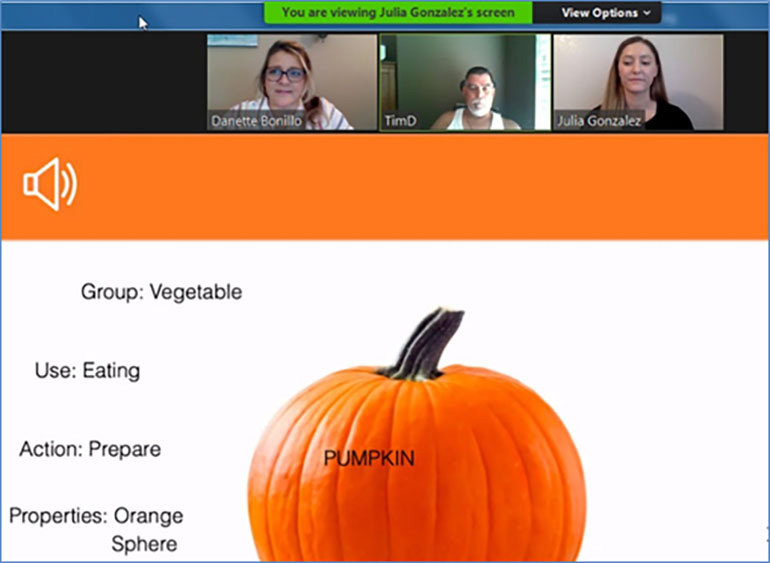
Julia Gonzalez, a California Baptist University graduate student, leads her client through an online speech therapy exercise as Dr. Danette Bonillo oversees the interactions.
Graduate students from California Baptist University’s Speech-Language Pathology program continued to serve their clients via telepractice during the COVID-19 pandemic. Fifteen students are serving 36 clients, ranging in age from 2 years to 95, in the summer session.
Dr. Danette Bonillo, director of clinical education, has taught students how to use technology to conduct virtual speech therapy sessions known as telepractice.
“Everything we were doing at the clinic before COVID I had the students transform it into online,” Bonillo said. “They did a fantastic job. We’re taking everything we already do to another level.”
Students finished the spring semester providing two weeks of telepractice. For the summer session students will offer telepractice for another six weeks.
“Think about these people who were already feeling isolated, especially stroke survivors, and now they’re more isolated than ever,” Bonillo said. “We really have to provide that opportunity to engage.”
Graduate students in speech-language pathology are also providing telepractice speech therapy with private clinics, schools or earning hours with web-based simulated case studies.
“In telepractice speech therapy, the goals remain the same as if it were an in-person session. The delivery is just different,” Bonillo said.
Students learned effective use of technology such as adjusting lighting so one’s face is well lit. While in a session, the students need to alternate between showing their faces and materials they are reviewing.
Bonillo said students need to use short sentences, gestures and increase voice intonation to keep clients engaged.
The students also provide music videos, online activities and coaching for families of younger clients.
“It’s a dynamic session that includes a lot of different visuals and a lot of different forms of input. The key is to be connected,” Bonillo said. “We’re finding that the clients are responding very well.”
Megan Macias, a speech-language pathology student, said she was initially nervous about telepractice. She would practice what she was learning with her family and friends. In the end, her sessions with clients went well, she said.
“I was pleased that I was able to connect with them and wrap up our semester together. Dr. Bonillo prepared us well and helped us in accessing resources and becoming familiar with all aspects of teletherapy,” Macias said. “Learning these skills and creating a growing repertoire of teletherapy materials will greatly benefit me and the clients that I will serve in the years to come.”
The Master of Science in Speech-Language Pathology program is a two-year program, with second-year students due to graduate in August.
“The CBU students will leave stronger because they’re going to have a really strong foundation of what a professional telepractice session looks like,” Bonillo said.
Peggy Plavajka honored as 2020 CBU Employee of the Year
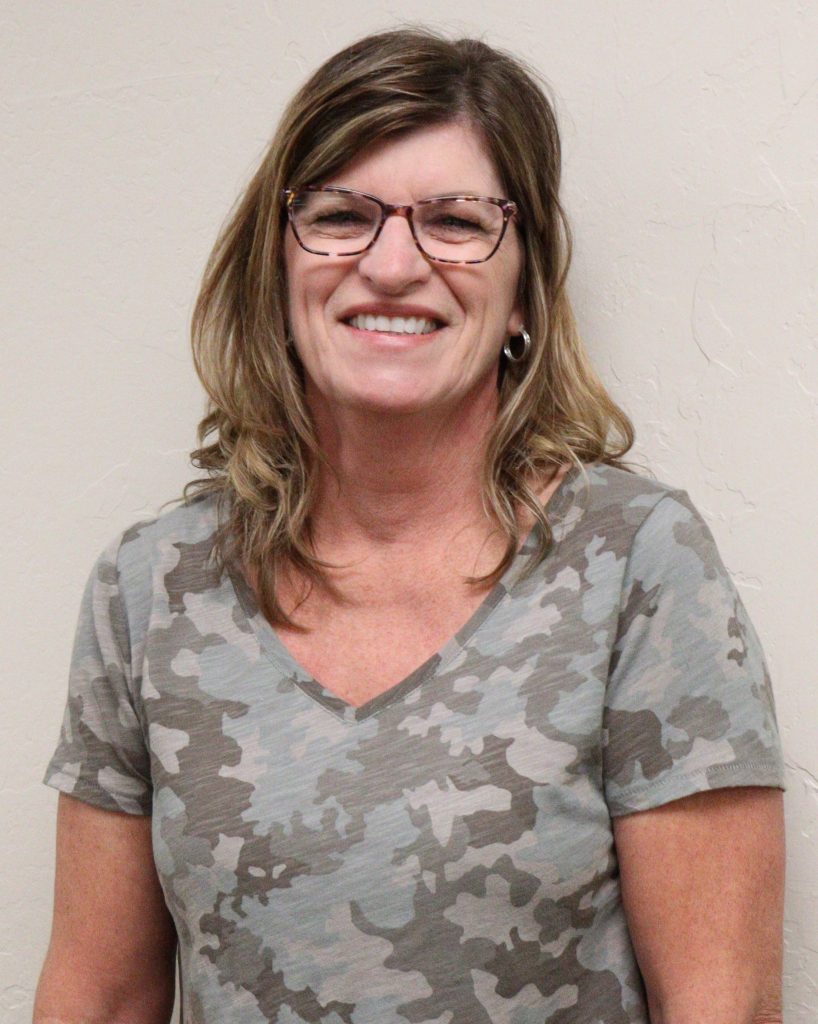 Peggy Plavajka, senior lead payroll technician in the accounting department at California Baptist University, has been named 2020 CBU Employee of the Year.
Peggy Plavajka, senior lead payroll technician in the accounting department at California Baptist University, has been named 2020 CBU Employee of the Year.
Plavajka was nominated by her supervisor and named CBU employee of the month for April 2020. She subsequently was chosen as Employee of the Year by CBU’s Executive Council, which selects the Employee of the Year recipient from among staff members chosen as employee of the month during the academic year.
The 2020 Employee of the Year honor recognizes the critical role Plavajka performed as part of a team effort to achieve a mandated transition to compensate adjunct faculty on an hourly basis instead of paying them per course. The change required a complex calculation of hourly rates differentiated by course type, program type, and educational background.
In less than three weeks, Plavajka and the team completely shifted the payroll process for adjuncts, who typically number some 400 per semester at CBU.
Plavajka, hired at CBU in October 2004, has served in a series of positions in the university’s Finance and Administration Division: student accounts counselor, senior student accounts counselor, payroll technician, and lead payroll technician. She was promoted to her current position in July 2017.
Dr. Seung-Jae Kim is named 2020 CBU distinguished scholar
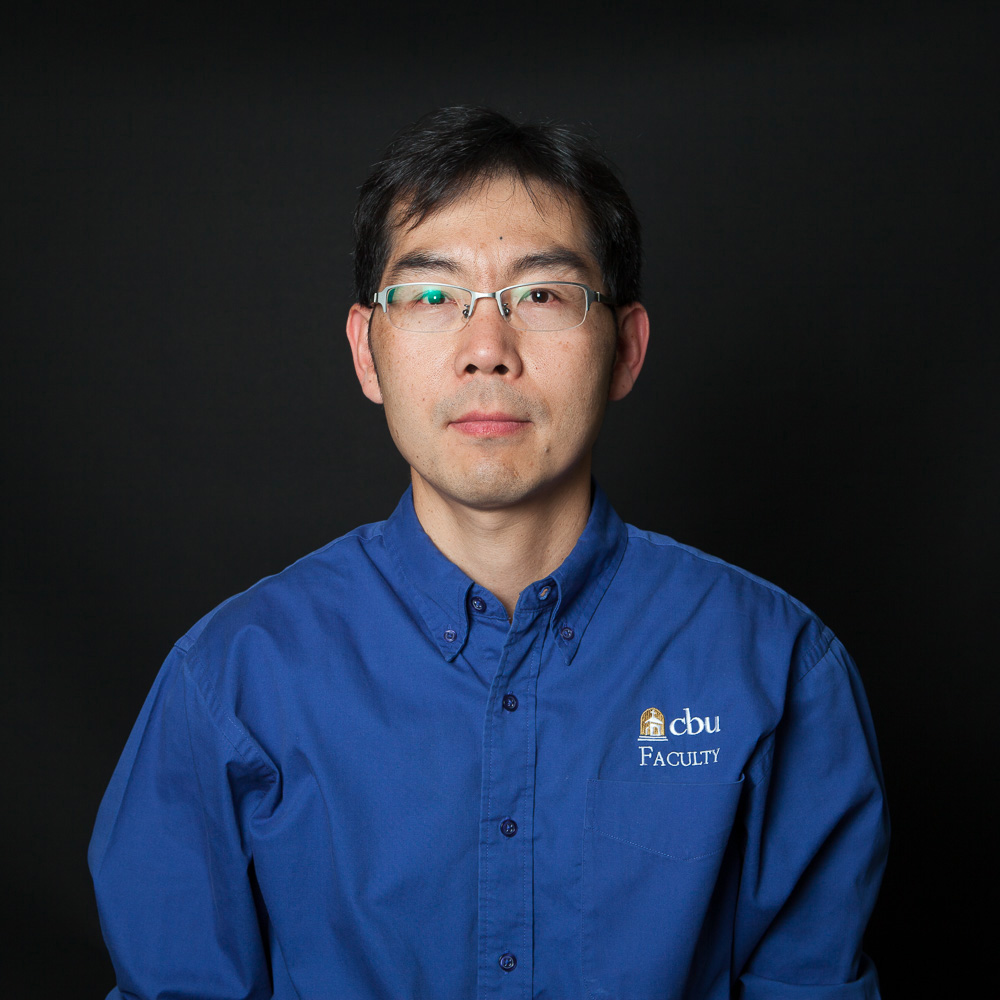 California Baptist University has named Dr. Seung-Jae Kim, professor of bioengineering, as Distinguished Scholar for 2020.
California Baptist University has named Dr. Seung-Jae Kim, professor of bioengineering, as Distinguished Scholar for 2020.
Kim’s research proposal for “Artificial Intelligence in Human Movements” earned him the distinction awarded annually by the CBU Board of Trustees.
The aim of Kim’s research proposal is to discover machine learning techniques for biomechanical research and incorporate the results of the study into class projects. The research will explore the usage of machine learning methods in human movement biomechanics and develop a method to evaluate the human gait.
In his proposal, Kim said over the years he has investigated human locomotor adaptation using psychophysical experiments. He also has worked on developing rehabilitative strategies that accelerate and enhance the process of acquiring and retaining motor learning. Recently, Kim developed course material designed to help students learn and practice fundamental machine learning algorithms using Python programming language.
Artificial intelligence utilized by machine learning has many applications in numerous fields, including healthcare, education, finance and transportation, Kim said. Research of artificial intelligence and bioengineering offers great potential to improve clinical decision-making, accelerate rehabilitation programs for neurological disorders and educate students.
“It appears that we are on the cusp of artificial intelligence technologies that can identify subtle differences in tissues, cells or proteins between a healthy person and one with certain diseases,” Kim said. “Successful leaders of the future will be those benefiting from deep knowledge and intuition in both the artificial intelligence and engineering fields. Yet we face a serious shortage of such versatile individuals. I believe that we need to nurture students with the intellectual flexibility and passion to undergo lengthy training in engineering, computer programming, machine learning, biomedical science, mathematics and statistics.”
Dr. Bonjun Koo earns 2020 CBU distinguished professor award
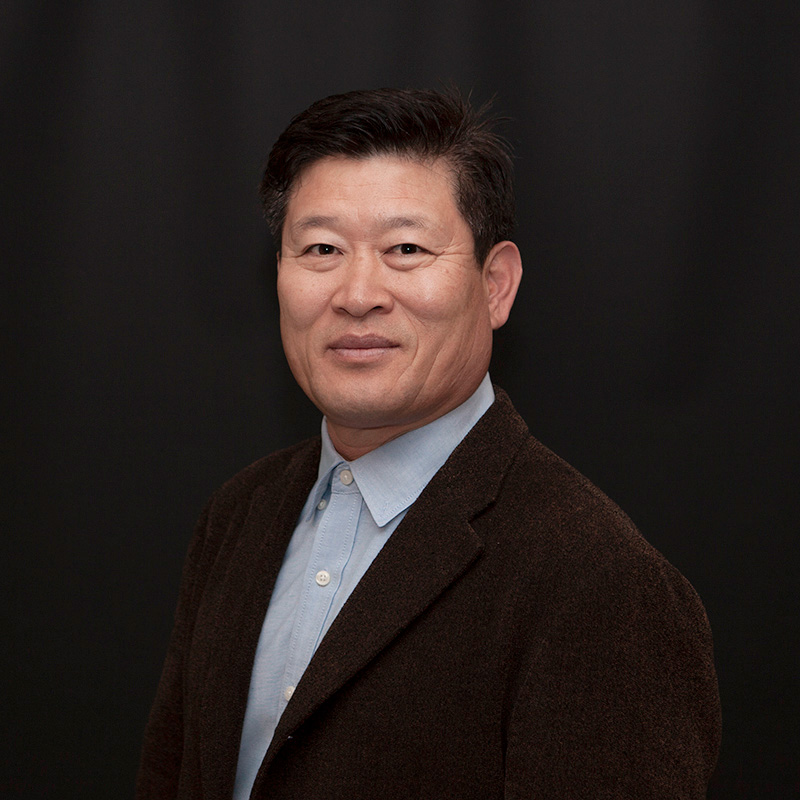 California Baptist University has named Dr. Bonjun Koo, professor of environmental science, as the Distinguished Professor for 2020.
California Baptist University has named Dr. Bonjun Koo, professor of environmental science, as the Distinguished Professor for 2020.
The CBU Board of Trustees each year selects a professor who has established an impressive record of service to receive the award.
“Dr. Koo is an amazing faculty member who strives for excellence in his teaching, scholarship and service,” said Dr. Lisa Hernández, dean of the College of Arts and Sciences.
Hernández said Koo inspires the same level of rigor and excellence in his students as he would expect from himself. Koo also maintains an active research program for his students and himself, she added.
Koo serves on several university committees, including those dealing with CBU’s green initiatives. He is a faculty advisor for the Korean Associated Student Club and Environmental Science Club. Additionally, Koo works closely with both CBU’s Global Initiatives and University Advancement teams to recruit students and donors alike.
Koo also has spearheaded program review efforts for environmental science and organizes and leads an eco-tour to a different country each year. He serves as a member of 10 professional organizations and reviews manuscripts for professional journals. Additionally, he is a board member of the Inland Korean American Association and serves as an ordained deacon, Bible teacher, cell group leader and treasurer for the Riverside Korean Baptist Church.
“Dr. Bonjun Koo is a great champion for the programs within the biological sciences and the university as a whole. He serves as an ambassador for CBU on campus, within the community, and abroad,” Hernández said.
“His dedication and passion for teaching his content and developing research is inspiring to both his students and his colleagues. Dr. Koo is an exemplary faculty member and an excellent choice for Distinguished Professor of the Year,” Hernández said.
Keeping the CBU community connected
While the CBU community is doing its part by working remotely, we want to make sure Lancers stay connected. Here is a glimpse of how staff and faculty members do this while working from home.
Stefani Plummer, director of Recreation Center
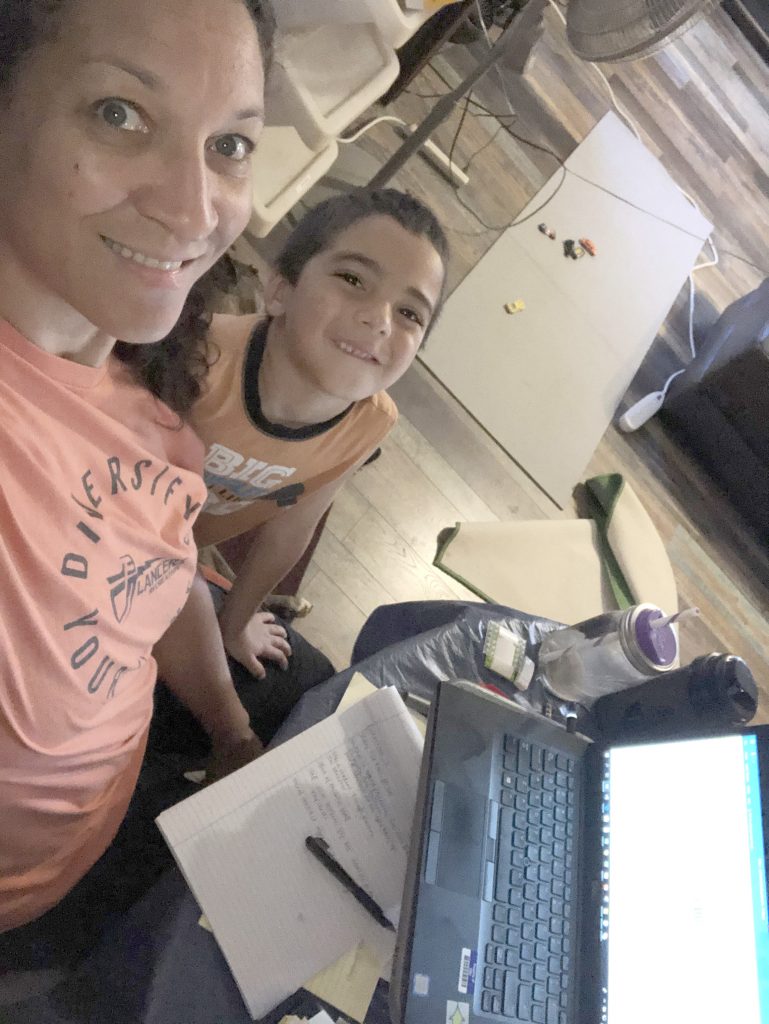 Describe where you work at home.
Describe where you work at home.
I have “planted a flag” at the dining room table. It makes dinner time a little dynamic as my piles of paperwork get stacked and unstacked!
How are you staying connected with your department and students?
I miss our whole team! For our full-time staff, we could probably just do a conference call, but we opted to do almost all our meetings and calls via Google Duo so we can connect visually. We have done a couple WebEx hangouts for our student workers as a large group, and have texted and called them as well, just to connect on a more personal level. We participate in the our own recreation programming online, and have created online workouts, live classes, fun challenges, competitions and resources for current and incoming students, but we are also using all of this programming to stay connected and stay well.
What is one thing you miss from working on campus?
Besides the obvious—students—and being in the amazing facility, I am pretty simple. I realized pretty quickly that I am not set up at home with basic supplies for a long period of time. So the thing I missed most was a printer (and maybe a stapler). I may or may not have documents glued together with my son’s glue stick!
Do you have children at home? How are you balancing being a parent and working at home?
I have one ACTIVE 6-year-old son, Jacob. Being at home has been great for our family. We have instituted “family walks” almost every night and it is something we will work to sustain. I so appreciate the school my son attends and the assistance they provided with homeschooling for the end of the semester; those nine weeks wore me out! I would call myself a pretty routine person but this season has taught me a new level of flexibility in my “normal” schedule in managing both work and home.
What is your snack of choice at home and why?
Popcorn made on the stove with avocado oil. It’s my husband and my treat in the evening as we finally sit down and decompress from the day.
During a WebEx meeting or class, has a family member or pet stolen the show? If yes, how?
There were a lot of Lego creations that were showcased during online meetings. And I usually have my son sitting with me during roundtables. As difficult as it can be at times, it has been fun showing him what I do and what some of my job responsibilities are.
Dr. Marshare Penny, professor of public health
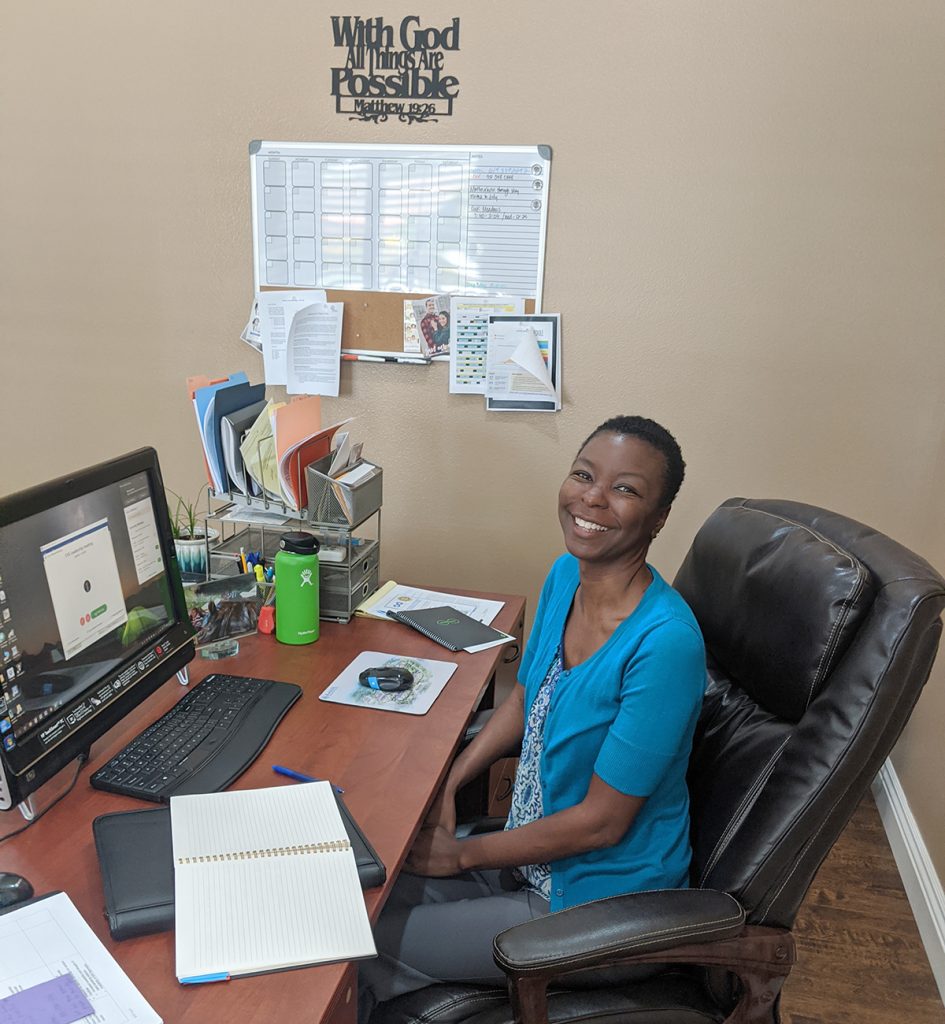 Describe where you work at home.
Describe where you work at home.
I work in my home office most of the time; although sometimes I get kicked out and have to work at the dining table or in the family room. Our home office space is being shared by my two boys (8 and 10 year olds) my husband, and I. It can get a bit crowded at times.
How are you staying connected with your department and students?
Before the spring term ended, we had department and program meetings using WebEx and WebEx teams. With my students, we are in the middle of summer courses, so I hold virtual sessions with them live each week. Additionally, I provide them with recorded lectures, offering built-in quiz questions for interaction and checking for understanding. I also use the RemindApp to text out quick messages to students.
What is one thing you miss from working on campus?
There are too many things to mention. As much as I appreciate quiet time to get things done, I rely on some background noise and conversation to get through my day. I miss seeing the smiling faces of our students and I missing seeing my colleagues/team every day.
Do you have children at home? How are you balancing being a parent and working at home?
Yes, two boys. It’s tough. There are early mornings and late nights and stuff in between. From my class sessions and meetings, to facilitating my sons’ homework, Google Meets class sessions, virtual band lessons and virtual soccer practices. I feel like a live version of “The Flash” (insert lightning bolt)! I think I have accepted a new job/position as my kids’ office assistant and chef.
What is your snack of choice at home and why?
Now that we are in the “summer” months, I love to snack on sliced strawberries. Every once in a while, I sneak in some chocolate covered pretzels too. I love these two tastes combined.
During a WebEx meeting or class, has a family member or pet stolen the show? If yes, how?
Most definitely. My husband has walked in during a program meeting asking if I wanted lunch, while carrying in a plate full of food. The meeting participants thought it was nice. On another occasion, while I was teaching my class, my 95-pound dog decided to beg me to let her outside by putting her head on my desk in front of the camera while whimpering.
Family Updates
Dr. Joshua Knabb, associate professor of psychology, and Dr. Timothy Sisemore, professor of psychology, were interviewed by the Psychology Today website about a book they edited, The Psychology of World Religions and Spiritualities.
Dr. Torria Davis, director of technology training, has been appointed as an inaugural member of Blackboard’s EdTech Advisory Board. The client governance board is designed to empower influential members of the Blackboard user group to lead and influence Blackboard community initiatives in the EdTech space.
Dr. Ed Garrett, associate professor for kinesiology for Online and Professional Studies, spoke to the Bio Med Medical Academy sponsored by Pacific High School on May 28. His topic was Building a sport psychology community: cultivating cognitive application within the health profession.
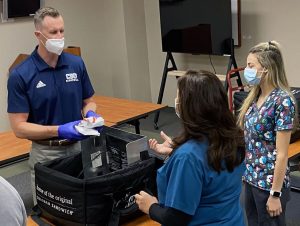 Rick Croy, head men’s basketball coach, visited a Riverside Medical Clinic location and served lunch to employees on May 27. The food was donated by Chick-fil-A (Central Avenue and Riverside Plaza).
Rick Croy, head men’s basketball coach, visited a Riverside Medical Clinic location and served lunch to employees on May 27. The food was donated by Chick-fil-A (Central Avenue and Riverside Plaza).
Dr. Amanie Abdelmessih, professor of aerospace, industrial and mechanical engineering, has been elected a Fellow of the American Society of Mechanical Engineers (ASME). Abdelmessih is one of only 3,425 Fellows out of 83,034 ASME members. The Fellow status recognizes the contributions and achievements of its members and their commitment to ASME’s vision.
Dr. Jong-Kyung Kim, associate professor of kinesiology, has co-published three papers. They were: Effects of Combined Histamine H1 and H2 Receptor Blockade on Hemodynamic Responses to Dynamic Exercise in Males With High-Normal Blood Pressure in Applied Physiology, Nutrition and Metabolism (January 2020); Physiological and Biomechanical Differences Between Seated and Standing Uphill Cycling in International Journal of Exercise Science (April 2020); and Effects of Acute Grape Seed Extract Supplementation on Hemodynamics in Normal Body Weight and Obese Males in Journal of Nutritional Science and Vitaminology (April 2020).
Kirk Bernal, associate director of Residence Life, and his wife, Joy, welcomed a daughter on May 1. Evelyn Josefina Bernal weighed 7 pounds, 6 ounces and measured 21 inches.
Meghan Balling, daughter of Christine Balling, student accounts advisor, graduated from Yucaipa High School on May 21 with the highest honors and will be starting at CBU this fall.
Personnel Updates
